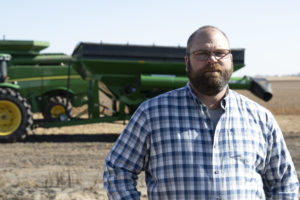
Partnerships That Drive Success
Guests: Todd Arduser, Kevin Poppel
In this episode of Channel Chat, farmer Kevin Poppel talks about the relationships and advice that have helped him find success in farming.
Listen to Episode
 Ag Over Easy Podcast
Ag Over Easy Podcast
The Greenwells represent Channel Seed well in Morganfield, KY. The dad, Jason, is an NCGA state and national winner growing Channel seed. His sons, Kirk and Drew, own and operate the Channel Seed dealer for the area. In this episode of Channel Chat, hear how Channel and the Greenwells’ father-son dynamic bring success to their family farm.
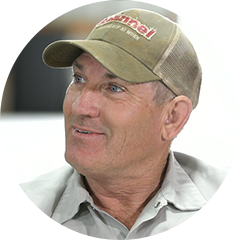
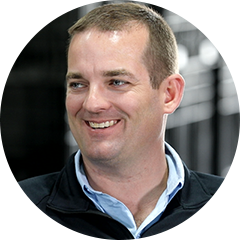
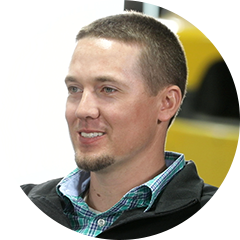
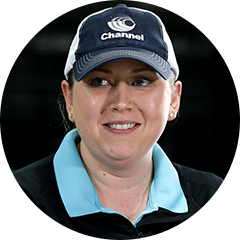
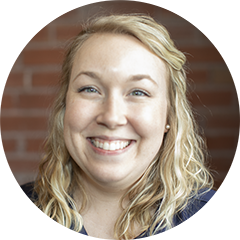
In this episode of Channel Chat, the Greenwell family told us how they worked together to achieve their latest NCGA win and Matt Bennett shared part one in a two part series on basis management.
Amity:
Hi, everyone. Welcome to season two of Channel Chat brought to you by Channel Seed. My name is Amity Shedd and I'm so excited to be your host this season. In each episode of Channel Chat, you can expect to hear unique perspectives and personal stories in farming. For our very first episode, we were in Morganfield, Kentucky, with Jason Greenwell and his two sons, Kirk and Drew. The Greenwells are part of the Channel family. Jason is a National Corn Growers Association state and national winner. He placed third in the 2018 National Corn Yield Contest growing Channel® seed, and Kirk and Drew own and operate Bluegrass Seed Solutions, the Channel Seed dealer for the area. I had such a great time spending the day at Greenwell Acres. The family is so sweet and passionate about what they do, and they really know their stuff. Channel Agronomist Whitney Monin also joined us. She covers southern Indiana and Kentucky and was part of the team that helped Jason bring home his big win. So let's get started by getting to know more about the Greenwell family, starting with Jason.
Jason:
I’m Jason Greenwell, and I've been farming almost 40 years — since high school graduation. And I'm married and have five kids, and two of my boys are here with me today.
Drew:
So I'm Drew Greenwell grew up on the farm. I was raised, you know, it's, it's instilled in us. Went to Western Kentucky University, got into crop insurance and became a partner here at Bluegrass Seed selling Channel and ’cause I get two kids married with two kids, a 2-year-old and a 4-month-old.
Kirk:
I'm Kirk Greenwell. I'm married. I have two kids, a boy and a girl. So I also grew up on the farm, graduated high school, went to Western Kentucky University. All five of us actually went to Western Kentucky University.
Amity:
Wow.
Kirk:
Graduated from there and got into the seed business with a mom and pop seed business for a few years and eventually made my way here to Channel. And so that's where we're at today.
Amity:
And how long have you been with Channel?
Kirk:
So 2011 I came on with Channel. It started out as KG Seeds and eventually, once more people kind of got involved with me, we changed the name to Bluegrass Seed Solutions and that's what it is today.
Amity:
OK. And you all three live very close to each other in the area, is that right?
Kirk:
Yes, we can all see each other's house pretty much from our house.
Amity:
That's awesome. So you've grown up and even in adulthood you guys still stay very close working together and living close together. That's awesome. Whitney, do you want to introduce yourself?
Whitney:
Yes. My name is Whitney Monin. I'm the technical agronomist for Channel, supporting our seed business in southern Indiana and Kentucky, which means I get great pleasure and feel very blessed and fortunate to support Kirk, Jason and Drew in their business and in some of their farming endeavors. I grew up in central Kentucky. I'm married to my high school sweetheart, Josh, and I spend a lot of my time really helping other people achieve their goals and dreams, especially in agriculture. So I've been with the Channel business for about five years now.
Amity:
And how long have you been working with these guys?
Whitney:
So I've been working with Kirk and Drew, I guess I celebrated my two years, two-year anniversary in the territory on March 1st, so it'll be two years working together.
Amity:
So it's really a team between all four of you guys working to get, like, the best results?
Whitney:
I'd say that's a very fair statement. The reality is, and when I think about agriculture, when I think about agronomy, it is in every way a team sport. You know, I don't feel any one person can totally be successful in and of themselves. So I feel like I get to be a cheerleader or a support system, and we all get to work together as a team to hopefully win and achieve an overarching goal.
Amity:
Absolutely. That's awesome. What are some of the ups and downs and the good and the bad of working in a family business? All three of you guys together.
Jason:
The upside is you get to work with them every day. You see them every day. So you're involved with one another every day. I'm not going to say the bad things about it.
Amity:
Maybe the tougher aspects.
Jason:
The tougher aspects is, you know, well I guess we can all have some disagreements on the way we do things, everybody has a different idea of how they want to do things and you know, which is good. But we can have those disagreements in the, in that regard I guess. But for the most part, everything's good.
Amity:
That's probably healthy to disagree a little bit. So you guys are trying to figure out the best plan that works for y'all.
Jason:
One of the neat things I guess for like me, and Drew, is that, you know, being in the seed business and being in on the other side of agriculture I guess you'd say, is that we get to, we get to interact with a lot of different growers and a lot of different people in the industry. So we get to take ideas from kind of what everybody else is doing and kind of present it to him and the family operation, and see how we can take some of those ideas to improve our own.
Amity:
Is that a little bit about why you started selling seed? Does that kind of play into that a little bit?
Kirk:
You know, I went to college and when I was in college, I had every intent to farm I guess. And then when I graduated, we have a big family, so I thought it was necessary for me to take a different path at the time. And so I took a job as a seed salesman and still probably had the intent of eventually farming, but the seed business has been very successful, and I really enjoy what I do now. And so I think this is a good fit for me at this point.
Amity:
Can you offer a little different aspect I guess, or look at the farming business?
Jason:
He sees both sides, which, you know, which is an advantage I think. He said he takes all those opportunities that he sees different ideas that an average farmer may not see. And you know, he might implement some of that into our operation. I don't see that, you know, because I don't go to other operations and see some of that stuff that, that actually they're doing. And so that's things that they see that I don't see sometimes.
Amity:
Talking about the future of agriculture, what sort of trends are you seeing coming up, looking toward the future?
Kirk:
So the industry has changed tremendously over the last 10 years I would say. But a lot of the changes that have happened are things that I saw coming or things that I've kind of predicted. I don't know how this thing's going to look in 10 years, to be honest with you. You know, there's a lot of things out there. Maybe good, maybe bad, I'm not real sure. So I really like where we're at today. I think we've got a lot of the necessary tools to be successful. And so, you know, I think it's going to take an approach of, you know, picking and choosing the things that can come available in this industry and which things are going to benefit our industry.
Amity:
Right. Jason, Drew?
Drew:
I mean, yeah, it's hard to predict the technology, the advancements, you know, it's hard to know. You know, I think it's kind of out of our control and out of our minds what we can even imagine where it can go. I think the market, you know, kind of can persuade that you know, like my granddad, he started with ... he can remember. I can remember stories of him with a horse and you know, before he passed away there we were flying a drone, you know, scouting fields. So it was, it was a lot for him to see a lot of changes happening. I think we can still see a lot more.
Amity:
Right.
Jason:
He just brought up something about my dad, and always said in my personal things, is he’s seen more in his lifetime than I can ever imagine seeing. But I'm beginning to wonder if I might see more than him because technology is changing year to year so quickly that I might have to rethink what I always thought. ’Cause I think I might see more my lifetime than him.
Amity:
Right. And how do you think Kirk and Drew are helping you kind of make those adjustments to certain trends and agriculture moving toward the future, especially as being a Seedsman and helping you adjust to that?
Jason:
Well, for one thing, their job is to kind of lead me in their industry, in the seed industry is the best seed, the best technology. And that's what's going to make me on the bottom line is going make me the most profit. If I'm using the best genetics and everything in my program that, you know, that's where my best profitability is going to be. So that's where I rely on them, and everybody here that you know that's going to make me the best profit down the road.
Amity:
Right? It's a win.
Whitney:
I think the reality is that as agriculture and agronomy and technology and all these things that change, are changed. We're not farming on a macro basis anymore. We're farming on a micro basis. You know, in years past, a lot of decisions were made on an operation-wide scale. You know, Kirk, Drew and I we’re making decisions on a field-by-field, and sometimes parts of field, basis. The resolution we have with data has changed everything, and it obviously has to change our decision-making — especially when it comes to product placement, the population considerations, herbicides, fungicides.
We can look at so many different levels of data. It almost becomes what do we change now that we know all of these different variables are at play. We can't change five of them at once and then know what made the difference. We have to be picky and we have to be choosy to prioritize what we can do to maximize Jason's ROI. I mean, and ultimately all the dollars have to make sense in farming today. It's just so collective and it's just so amazing to me. It's no longer macro decisions. Everything is a micro decision.
Kirk:
I think it's amazing how we collect so much data today, and it's an immense amount of data that none of us can process. And so what's amazing is that we've got tools that can process that data for us. And we can actually put that data to use today and you know, and that's going to keep continuing to move forward with artificial intelligence and everything that we're implementing in today's world. So I guess for us, it's kind of figuring out our jobs are going to change 10 years from now; our jobs are going to look different than it does today. And it looks different now than it did 10 years ago. So it's going to be an interesting road.
Amity:
And I know we've touched a lot on how Kirk, your knowledge impacts Jason, your operations. What about vice versa? How does Jason and, or your dad's way of doing things kind of impact the way you look at things when it comes to all the data, the analytics and that kind of stuff?
Kirk:
So what's really neat for like me and Drew and, then we pass this information on to Whitney and Brandon and everybody else that's on our team. And so our farm allows us to… so we plant Channel on our farm, and a lot of it, and we plant many different varieties, and we get to evaluate all this stuff. We don't just plant one little plot out here where we're evaluating these hybrids. I get to see these hybrids over hundreds or thousands of acres. And so that really helps us to understand our products even deeper than what most people can. And then we can take that information and pass it on to Whitney and the rest of our team. And, it's an interesting way, a different way I feel like then what some people may have the opportunity to do. I feel like we know more about our products than almost anybody in the industry.
Amity:
And you guys all think you have a pretty good relationship, being able to have those discussions about what's best for — and even you, Whitney — what's best for your potential yield and your crops and your farm and everything. You all get along for the most part and accept all that?
Drew:
Yeah, it can be challenging at times. You know, it's kind of, sometimes it's tough to step out of what your comfort zone is, you know? I mean, there are a lot of things that we're trying different that is not, it's not the traditional way of farming. So you know, you have to be open to try and do things and that can be a challenge.
Whitney:
What impresses me so much about Kirk, Drew and Jason is that irregardless of a disagreement or an agreement, it's a common goal that is held among them all. And I think as an outsider looking into their operation, that is what makes them successful. It's the ultimate synergy. We want to grow the best corn, we want to reach our yield goals. We want to build a sustainable farm, not just for their generation but for the generations to come because there are generations to come. And you know, that's something, you know, I admire looking in, is that you, irregardless of any disagreements or agreements, ultimately the goal is the same.
Amity:
So if you want to be wins, I mean it's a win for you all. You're all in it together, right? So let's talk a little bit about your recent NCGA win. That was huge for you guys. So I want to hear that story. Who tells it best?
Jason:
Probably Kirk because he found out before I did.
Amity:
Oh really? How'd that happen?
Kirk:
Well, so I mean, my phone number is on his account, but so they called me and told us that we won, which I'll be quite honest, I mean, at this point, I expect to win now. I mean, I feel like we've been trying this for a few years and we've figured some stuff out. We expect to get that, you know? And so it was very exciting because it was our first time. But we don't plan on it being our last.
Amity:
That's an awesome attitude. That's an awesome attitude. Do you guys agree?
Kirk:
Third place is not first place.
Amity:
I like that. Yeah. Jason, what are your thoughts? You got to be proud. I mean, that's huge.
Jason:
I am. I'm proud of everything that they've done because they do the, they do the bulk. They, they choose the seed for me. They go out and they figured out a plan. They know what they want to do and we stick to that plan the best we can. And then you had to make changes all along the way. But, he told me and you don't ... My demeanor is I don't get real excited. They're laughing about it, but I don't. But I thought, well this is great. And then I go and I tell my wife, but she gets real excited. So then I get excited after that.
Whitney:
Yeah. I mean, the reality of it is, is all the decisions and the win is Kirk's and Drew's and Jason's, and I just get to feel sometimes like a cheerleader. You know I describe it sometimes as you know, being a tag-team partner in a wrestling match. You know I get to tag in and I get to be a sounding board for some of the decisions and the choices that these guys are making, and almost every year I have a one-on-one discussion with Kirk and I say what are you going to do different this year?
And sometimes that's a hard question to answer, you know, especially when these guys are pushing the envelope of innovation and the bounds of what digital ag and data can do on their operation and their management strategies are really down to very tight specifics. And so I think I really like to try to help elevate these guys by bringing in some more third-party data, having more one-on-one conversations and letting them know what our Channel products could do.
I think we as a Channel company have always known that we have leading products, and we know that we need to be recognized on the national stage because our products can do it, and I think Kirk and Drew and Jason have just begun to prove that on a national stage. And I can't wait to see what they continue to do and maybe what others inspired by them continue to do because I think there are so many decisions. But I personally think that you could make all the right decisions. But if you don't select the correct germplasm, if you don't have the right product in the field at the right population, potentially, you're just never going to make it to that national stage. It's a series of decisions, very highly technical decisions that these guys make that have led to the culmination of this win. And I just, I'm so proud to be a part of their operation and even get to be on the sideline and there to be tagged if called upon.
Amity:
That's awesome.
Whitney:
Yeah.
Kirk:
So there's this, I mean there's a story to this whole thing and Drew and can probably interject here as I tell it, but you know, so we'd never entered any kind of contest prior to 2013. And 2013, we were out in the field. It was fall and we found a really good spot in the field. And, and in the state of Kentucky, basically there are two contests. There's the contest put on by the University of Kentucky and then there's the NCGA. Well the NCGA, you've got to preregister for that. So in 2013, we were not registered in the NCGA, but we did cut a check for the University of Kentucky, and it was good and it won the state but it didn't win the NCGA because we weren't entered. Had we been entered that year, we would have placed third nationally that year as well.
So that was like, wow. The next year we started entering in our name ito the NCGA contest from there on out. And I guess there was a lot of failures in the beginning. So in order to be successful, I guess you have to go through your failures in the beginning and it kind of goes along with what Whitney said. You know, the first year or two that we actually tried to do this, we were only planting one corn and we always picked out the corn that did the best the year before and that bit us every time because we found out that a lot of times, the corn that does best the year before may not be the one that does best the next year. So, it's been a lot of lessons learned over the past five years since we kind of started doing that. And you know, everything that we do in our high-yield plot, we also do individually and what we call our trial plot.
So if we do a fungicide application at V5, we've got a field where we do just an application of V5 by itself. And then if we do starter, well there's a strip in that field that's just that starter. And so we're trying to evaluate everything that we're doing in the high-yield plot, we're doing individually in a separate plot. So the goal of this whole thing is to find out what things can we do that we were not just going to do on a 30-acre high-yield plot, but what are the things that we can implement into broad acres that are going to increase the bottom line. And so I think that's the main goal of what we do. But the high-yield plot has kind of become... some people like to grow garden, some people like to grow giant pumpkins, like Whitney, and we kind of like to grow high-yielding corn. So it's a competition and it's fun. I don't know if you'd like to add anything.
Drew:
Yeah, just back to it's a contest for a reason. You know, there are several years there that we didn't place. And you know, Mother Nature is ... We've had hail storms, wind and floods and a lot of things there that have worked against us. You're at Mother Nature's mercy. I think we have learned, you know, a lot. I think it helps dad and them’s farm, we're trying to figure out that return through the plot. You know, what they can do on a broad acre. And I think it helps me and Kirk in our business because you know, we're able to not only implement it on our family farm but you know, try to teach others about what we're seeing out there in the field.
Kirk:
It's also brand awareness too. I mean it doesn't just help our family farm, it helps our local Channel brand as well as national Channel brand. I mean, I feel like kind of like Whitney said, we have elite germplasm within this company, and it needs to be, it needs to be on that list with all the other brands that are up there.
Amity:
All that failure makes it just that much more special when you guys actually do win. So that's awesome. Do you have anything else you want to add, Jason?
Jason:
Well, I always make this comment and then always say everything that we do is practical stuff that everybody can do if they put their minds to it instead of go and do it and put it on paper and just kind of stick to your plan the best you can. Don't give up on it. And it's a practical way of doing things. And that's what I like about it, something that's, you know, we're not going out there and putting a snake hole on something and trying to make it, it's stuff that practically you can do on every acre.
Whitney:
And, Jason, I think that is such a powerful statement because a lot of people could identify the garden spot, you know, like Drew and Kirk, you know, this is the best spot in the field to try to grow the best score we can possibly on the whole operation. A lot of growers have that exact same garden spot, but I think, you know, and you can throw a bunch of money into trying to place something on a national stage. But the reality is the decisions that these guys are making about are about building APH, building yield over time and doing it in an extremely economic fashion. Because just like anything, you can start throwing the kitchen sink at all of this. But again, the dollars have to make sense. and it's, it's just a refreshing, different concept to which they approach this NCGA contest.
It's not just about making the most yield, it's also about making the most money. You know, which we have to, we have to I think, talk about that in the economic times that we are in, in this industry.
Amity:
Right. And then when we were out in the field, Whitney and I, just a little bit ago, we're looking at the three of you guys all together and it was a very special moment and you commented on that. What did you say?
Whitney:
Yeah, I just said, you know, they're so deserving of this recognition today and you know, it's so rare. You know, I work with hundreds and hundreds of, and at this point now in my career, thousands of different farming families, businesses, entities and groups. And the amount of personal and professional respect that they share for each other is uncommon. You know, it's really a beautiful thing and I do hope, you know, Kirk and Drew and the extended family continue to blossom and grow, and it's just beautiful to me that Channel gets to be a part of that. I even get to stand on the sides, and like you say, comment on it because it is exceptionally rare in our industry today and a lot of people don't have the opportunity to come back. A lot of people don't have the opportunity to be a part of a family business. So it's a wonderful thing.
Amity:
So this is kind of more about getting to know you guys. You obviously grew up together, farm together, live very close to each other, you're around each other all the time. What do you do, but together, besides farming, what do you guys talk about besides farming?
Jason:
Farming. No, no.
Kirk:
Well that’s what all of our wives would say, I guarantee it.
Jason:
Well, I mean that's what our common interest is. But the one thing that I’d like to say is on Sundays, we all try to get together, have dinner or something as much as possible and keep the family thing kind of together. And that's one thing that we enjoy doing is have a cookout or go to somebody’s house. We go to each other's houses and so that's our weekly thing that we like to do as much as possible. Not every week, but as much as possible.
Drew:
We're still farming at Sunday night dinner, we're still farming, but no, I think we all enjoy sports and get ... We like to watch U.K. basketball together and St. Louis Cardinals. And so we're a sports family.
Amity:
What does it mean to you to have your sons working with you so closely and for you, Kirk and Drew, do you see that as something for your family as your kids grow up?
Jason:
Well, for starters, I'm proud of what they've done, what they've accomplished already in their young lives. They've, they teach me things every day and you know, I may be the one that's supposed to be teaching them, but they're teaching me also. So, you know, that's, I'm proud of that and I'm proud of the way they conduct themselves and no they, they've done an excellent job. They've taught me a lot.
Kirk:
I mean, I guess for my kids, you know, really dad never pushed us to farm. I mean, it was always there as an opportunity or to stay in agriculture. But he never said, you know, “you've got to go major in agriculture in college.” I mean, I was on the five-year plan in college, I'm not going to lie. And a lot of it had to do with, it wasn't because I was failing class, it was just because I didn't really know. I thought about having, doing something different. And, at the end of the day, I went back to my roots, which I'm 100% happy with that decision now. But with that being said, you know, I hope my kids want to be in agriculture. But I'm not going to force it upon them. I hope they can make their own decision to do that.
Drew:
Yeah. I mean, I think we have Dad to thank for all of our successes. I mean, he taught us as we're growing up — he took us to the farm every day, every chance he could. And that's not an opportunity that a lot of people have. And yeah, if I give my kids that opportunity, I love the opportunity to work with them.
Kirk:
The cool thing about farming too, my wife still to this day doesn't understand, is that I'm not just, I didn't just grow up a farmer. I'm also an electrician and I'm a carpenter and everything else. Because when you work on the farm, you learn all those things. And so yeah, I don't have necessarily, I don't know that I'm going to have the opportunity to take my kids to the farm every day like he did with me. And I just, I just hope that I can still teach my kids all those things like I was taught because you know, those things come in handy a lot.
Amity:
I have one last question. I wanted to know if there's a brand new farmer out there, what's one piece of advice you would give them before they plant their first crop? For all of you.
Kirk:
You've been doing it for 40 years, so ...
Jason:
Set a goal, work hard and then you have to, you have to put your mind... Whatever you put your mind to, you can do it.
Drew:
Yeah, I think being successful is about, surround yourself with the right people, you know, to be able to learn from everybody. A lot of my successes have come from having the right team of people with me, Dad, Kirk, Whitney. I learned a lot and have implemented those things through life. And hopefully it's the Channel team. But if it's not, just figuring out who your team is.
Kirk:
Don't overextend yourself and don't cut corners at the same time. You know, there are a lot of things that can go wrong if you do those two things and you know, there's not a whole lot of room for failure in today's agriculture world.
Whitney:
I would say my biggest advice is be absolutely persistent and unrelenting in your work ethic and what you are willing to put forward because farming's not easy. And I think the other piece of advice would be to be an open listener. And don't be afraid to say you don't know because the reality is none of us can be perfect at everything. And I work with hundreds of different growers and customers, all of them call themselves farmers on their job description, but none of them farm the same way. So, be willing to say you don't know and be willing to listen to other people who have come before you. I think that's how ultimately all of us are successful.
Amity:
OK, well thank you guys so much. I mean, we're just so grateful you let us come out here and hang out with you for a day. We had so much fun and just thanks for talking to us. All right. Thank you
Thanks so much to Jason, Kirk, Drew and Whitney for hanging out with us today. Now let's throw it to grain marketing expert Matt Bennett. He's going to give us some tips on grain marketing.
Matt:
I'm Matt Bennett. I am the grain marketing consultant for Channel Seed, and we're doing a set of series about the grain markets. So you know, I'm a fifth-generation farmer from Shelby County there in Illinois. We farm about 2,700 acres, and I studied ag business at the University of Illinois, and I've been following grain markets since I was a kid. I've been working with Channel for several years now. I just want to start out with talking about basis. Producers, a lot of times, as producers, I guess we get hung up just a little bit on flat price. And so for instance, I might say, “I just don't want to sell any corn unless I get the $4 corn.” And I certainly understand that. At the same time, there are a few things that we can learn from the way that a basis might behave throughout the calendar year that I think can be a huge benefit to us.
So first and foremost, I think on a very simplistic level, when basis is very strong, I think the market is certainly trying to send signals to us that that's when they want the grain and that they want it right then. If we look at the board of trade and other indicators that they want the grain right then is if the front month futures would be, you know, more than the than the deferred months, which people call an inverted market. So typically, if you see front month futures higher than the deferred futures, you'll see basis actually quite strong as well in most of those situations. And so the last couple, three years, that's not something that we have experienced. We've had strong carry in the market. Most of that has been because we've had a plethora of corn, we've had plenty of stocks both in the U.S. and in the world. Looking at basis this year, it's actually been fairly strong for the 2018 into 2019 year even though 2018 U.S. crop was quite large.
So you got to ask yourself why was basis so strong whenever the crop was off. And I think a few things come to mind. Farmers were very hesitant to sell corn first of all. And second of all, I think that in certain areas, maybe there wasn't quite as much corn available as what people may have thought. So as we start this discussion, definitely want to be thinking about how basis can impact us on our farm. How can we manage basis? When is basis the strongest and when is it the weakest? If you have normal crop sizes, I think we all would agree that in the harvest time, that's when the basis is going to be weakest. And then as the year goes further, you typically see basis get stronger, especially as your elevator systems, your commercial systems, livestock feeders need the corn as the marketing year goes on.
I will tell you another very simplistic way of looking at this is that basis is not going to be very strong when there are a lot of producers calling into the elevator because the elevator simply cannot handle the bushels. And so one way that they can discourage the bushels is to lower their basis, thus obviously lowering their cash price effective to the producers. So you know, as we go into the second discussion, we're going to talk a little more specifically about exactly what we need to be thinking about when it comes to basis, how we can manage it, and how we use it in conjunction with some of the other marketing tools that we're going to discuss through the series. And I certainly hope that if you hear this and you have questions on basis or any of the other topics, that you'll reach out. So again, I'm Matt Bennett, the grain marketing consultant with Channel Seed. And thank you.
Amity:
Thanks so much for listening to this very first episode of Channel Chat Season Two. Don't forget to visit channelpodcasting.com to subscribe to this podcast. You can also sign up to receive texts or email alerts when a new episode goes live. That's at channelpodcasting.com

Guests: Todd Arduser, Kevin Poppel
In this episode of Channel Chat, farmer Kevin Poppel talks about the relationships and advice that have helped him find success in farming.
Listen to Episode
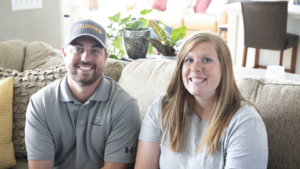
Guests: Colby Woods, Jessica Grubbs
As technology in agriculture continues to evolve, Channel Seedsman Colby Woods wanted to get ahead of the pack and offer drone scouting to his farmers in Eastern Nebraska. We caught up with Colby in Wahoo, Nebraska, along with Sentera Sales and Training Specialist Jessica Grubbs. Listen in this episode of Channel Chat.
Listen to Episode